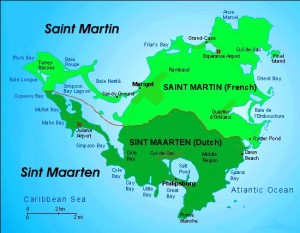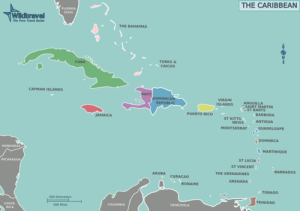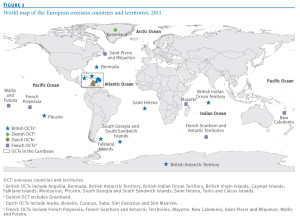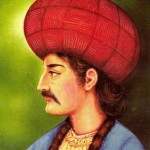Extended Statehood In The Caribbean ~ The UK Caribbean Overseas Territories: Extended Statehood And The Process Of Policy Convergence
Introduction
The chapter analyses the complex and ever-evolving relationship between the United Kingdom and its Overseas Territories (formerly known as Dependent Territories) in the Caribbean. The Territories are Anguilla, British Virgin Islands, Cayman Islands, Montserrat, and Turks and Caicos Islands. The chapter employs the term extended statehood, which is the focus of this study, in order to illustrate the nature of the relationship between the UK and its Caribbean Overseas Territories (COTs). In particular, there is an evaluation of the effectiveness of the arrangements in place, and a consideration of the extent to which the Territories are actually integrated into the world at large. The links between the UK and its COTs have been shaped and determined by particular historical, constitutional, political and economic trends. For many years the relationship between the COTs and the UK was rather ad hoc – a situation that can be traced back to the compromises, fudges and deals characteristic of pragmatic British colonial administration. The chapter traces the relationship between the UK and its COTs, and the efforts on the part of the current Labour government to overcome the legacy of only sporadic UK government interest, through the imposition of greater coherence across the five Territories via a new partnership based on mutual obligations and responsibilities. It can be argued that the recent reforms have led to a greater convergence of policy across the COTs and a strengthening of Britain’s role in overseeing the activities of the Territories. Nevertheless, problems of governance remain, which have implications for the operation of extended statehood in the COTs, and the balance of power between the UK and the Island administrations. In order to understand the nature of the relationship, it is first necessary to consider the constitutional provisions that underpin it.
The Constitutional Basis of the UK-Caribbean Overseas Territory Relationship
The collapse of the Federation of the West Indies precipitated a period of decolonisation in the English-speaking Caribbean, which began with Jamaica and Trinidad and Tobago gaining their independence in 1962, followed by Barbados and Guyana four years later. Despite the trend towards self-rule across the region a number of smaller British Territories, lacking the natural resources of their larger neighbours, were reluctant to follow suit. As a consequence the UK authorities had to establish a new governing framework for them. This was required as the West Indies Federation had been the UK’s preferred method of supervising its Dependent Territories in the region. In its place the UK established constitutions for each of those Territories that retained formal ties with London. The West Indies Act of 1962 (WIA 1962) was approved for this purpose. As Davies states the Act .(…) conferred power upon Her Majesty The Queen to provide for the government of those colonies that at the time of the passing of the Act were included in the Federation, and also for the British Virgin Islands.[i] The WIA 1962 remains today the foremost provision for four of the five COTs. The fifth, Anguilla, was dealt with separately owing to its long-standing association with St Kitts and Nevis.[ii] When Anguilla came under direct British rule in the 1970s and eventually became a separate British Dependent Territory in 1980, the Anguilla Act 1980 (AA 1980) became the principal source of authority.
The constitutions of the Territories framed by WIA 1962 and AA 1980 detail the complex set of arrangements that exist between the UK and its COTs. Because, with the exception of Anguilla, the relationship between the Caribbean Territories and the UK is framed by the same piece of legislation, there are many organisational and administrative similarities. However, there are also a number of crucial differences. Each constitution allocates government responsibilities to the Crown, the Governor and the Overseas Territory, according to the nature of the responsibility. In terms of executive power, authority is vested in Her Majesty the Queen. In reality, however, the office of Secretary of State for Foreign and Commonwealth affairs and the Territory Governors undertake decisions in the Monarch’s name, with the Governors having a large measure of autonomy of action. Despite this, Governors must seek guidance from London when serious issues are involved, and at the level of the Territory they are obliged to consult the local government in respect of matters falling within the scope of their reserved powers. Those powers generally reserved for the Crown include defence and external affairs, as well as responsibility for internal security and the police, international and offshore financial relations, and the public service. strong>[iii] However, some COT constitutions provide Governors with a greater scope for departure when it comes to local consultation. In the British Virgin Islands the Governor is required to consult with the Chief Minister on all matters relating to his reserved powers. While in the Turks and Caicos Islands and the Cayman Islands the Governor is obliged merely to keep the Executive Council informed. With such a balance of authority it has been argued that .the Governor is halfway to being a constitutional monarch (…) taking his own decisions in those areas reserved for him.[iv]. But as Drower has argued .[The Governor] has to have the authority to impose his will, but ability to do so in such a manner, which takes the people with him.[v] Read more
Extended Statehood In The Caribbean ~ Introducing An Anti-National Pragmatist On Saint Martin & Sint Maarten
 …the disaster of sovereignty is sufficiently spread out, and sufficiently common, to steal anyone’s innocence. Jean-Luc Nancy (2000: 142)
…the disaster of sovereignty is sufficiently spread out, and sufficiently common, to steal anyone’s innocence. Jean-Luc Nancy (2000: 142)
Much has been written about extraordinary West Indian intellectuals living in the West who see no contradiction in being Caribbean and European, Caribbean and North American. Their strategies of hybridism have become enormously popular in postcolonial studies. Long live the hybrids and blessed are those who follow in their footsteps. They are jettisoned into the position of role models for those who still reside on the islands. If only the islanders would not be so local minded.
What occurs with the best of intentions is that West Indian intellectuals espousing hybridism are presented as cosmopolitans while those who remain on the islands are presented as slaves to localism. Many West Indians myself included prefer that we be seen as pragmatic anti-nationals, and our expressions of being Caribbean and European should be read as such.[i] Our hybridism is not an endorsement for nationalism. It is a manifestation of our disagreement with these and all other imagined communities that harden themselves into natural categories. Categories that seek to assert irreconcilable differences between insiders and outsiders. We complicate notions of exclusive national belonging – asserting our West Indianness, Europeanness, and blackness – in order to awaken others from the nightmare of exclusive nationalism and bio-cultural racism. We are not however blind radicals for we take into account that without the defence of nation-states, at this historical juncture, the vast majority of West Indians would be ravaged by capitalism in WTO ordered world. We temper our principles and seek to listen to those who are reduced to statistics, numbers, and ‘the masses’ by dependency theorists as well as IMF technocrats. This is the stance of pragmatic antinationals, a stance that is a blossoming of a seed planted in us by our West Indian experience.
If there is one general rule among West Indians it is that most of those who stay at ‘home’ and those who go ‘abroad’ are both glocal, and are not totally drunken by nationalism (c.f. Mintz 1996). When and if necessary they can ‘forget’ their national belonging without scaring their souls. It is thus a small step for them to achieve an antinational state of mind. This may be truer on those islands that have never achieved formal independence: the alternative post-colonies in the Caribbean. Wielding Dutch, French, British, and American passports, many visit ‘the mother countries’ frequently and some have spent a few years living in the metropolitan mainland. They are a people who make ample use of the privilege of an extended statehood, and construct a way of being that accords with their situation. On these alternative post-colonies one encounters persons who also have no difficulty being West Indian and European as their counterparts do in ‘the mother countries’. Hybrids, pragmatic anti-nationals, can be found on both sides of the Atlantic. We need a more dynamic understanding of the peoples of the alternative post-colonies of the Caribbean.
The little posed question that this task helps us to answer is why independence activists in the alternative postcolonies have been unsuccessful in amassing huge support for their cause. The pragmatism of these populations who are said to opt out of independence because of a fear of poverty should not be presupposed. It should be proven. Homo economicus and homo ‘pragmaticus‘. need to be produced and stimulated. It is not inborn. We have to understand the mechanisms and human brokers in the cultural realms that continuously promote the pragmatic message countering the anti-Western messages of those championing political independence. In doing so it is of pivotal importance to appreciate the role of media and media personalities. In our mediatic world, media messages determine what we view as reality. Read more
Extended Statehood In The Caribbean ~ Comparing Notes On Extended Statehood In The Caribbean
 Great Variety of Extended Statehood
Great Variety of Extended Statehood
Great diversity is apparent in the organization and day-to-day operations of extended statehood in the Caribbean. Some point out that in the 1990s similarities have been emerging in the three sets of territories that are part of British, Dutch and French extended statehood systems, especially in terms of ‘good governance’ with its focus on democratic politics, competent administration, justice and civil liberties. At the same time it is expected that these territories are likely to retain much diversity in terms of constitutional status, citizenship rights and prospects for independence.[i]
Not only are there wide differences between the European partner countries in the relations they maintain with their overseas territories; also relations between a partner country and its various territories differ. These differences are mainly due to historical factors and to the partner countries’ constitutional structures.[ii] A brief survey of the variations of extended statehood in the Caribbean may serve here as an introduction to a number of issues that spring to the fore when comparing different extended statehood systems.
French Caribbean
Martinique, Guadeloupe and French Guyana have been since 1946 integrated territories in the French Republic; they are French territory, designated as overseas departments (Départments d’outre-mer) (DOM). Strictly speaking, unlike the USA, Dutch and British territories, the DOM have no constitutional links with France since they are part of France itself.[iii] Réno asserts that the most undeniable success of the Assimilation Act is social equality with metropolitan France. The flipside of the legal and political assimilation is, however, blatant economic failure. The state has become the breadwinner.[iv] The integrated status implies that ‘the French state was seen from the outset as the key to development (…) bringing about a new world that would meet every expectation expressed by the local population’.[v] As the DOM are integrated into the institutions of the French Republic, it naturally followed that catching up with the standards of living in France became the norm for the public’s aspirations. The financial transfers from France to the DOM are by and large regular transfers of resources within the French public sector; they do not qualify as assistance or development aid allocations.[vi]
It may be assumed that the public conceives these transfers, perhaps even more so the local politicians, as undisputable rights to provision the DOM public domain. In addition, being part of France implies large funding of the DOM by the European Union. In actuality the European Union provides much more funding to the DOM than France itself. Construction of seaports and airport terminals has been heavily subsidized by the European Union.[vii] Nowadays the currency used in the DOM is the Euro. The inhabitants of the DOM are French citizens with voting rights in the French elections; they have their own representatives in French parliament. The topics these representatives raise in Paris and the way these topics are being dealt with by the French ministers concerned, receive elaborate attention in the local media on the islands; these representatives do count more
than they number.
Dutch Caribbean
The Netherlands Antilles and Aruba are autonomous countries in the Kingdom of the Netherlands with each country having its own parliament, cabinet of ministers as well as local government institutions for each of the five islands of the Netherlands Antilles. These six islands are not integrated parts of the Netherlands in Europe; not the Euro but the Netherlands Antillean Florin (NAF) and the Aruba Florin (AF) is the respective national currency.
In 1954 the Netherlands Antilles and Suriname achieved the status of autonomous states as successor to the former colonial status. The Caribbean countries claimed autonomy, not independence nor integration into the Netherlands. They aimed to be partners on equal footing with the Netherlands. The 1954 Charter of the Kingdom designated the Kingdom as a ‘more or less’ federal state, comprising three autonomous countries, the Netherlands, Suriname and the Netherlands Antilles. Suriname became independent in 1975 with a majority of only one vote in the Surinamese parliament. With the benefit of hindsight, most Dutch politicians today agree that the way Surinam’s independence was handled was not a grand act of post-colonial stewardship. The remaining Dutch Caribbean islands have not wanted to follow Surinam’s example and become independent states. The Netherlands cannot make statehood amendments against the will of the Caribbean countries; the Charter stipulates that any changes require the unanimous consent of the parties involved. Arubans and Netherlands-Antilleans hold Netherlands’ citizenship and passports and have the right of abode in the Netherlands. Aruban and Netherlands-Antillean residents in the Caribbean have no voting rights in the Netherlands elections nor do they have representatives in the Dutch parliament. Unlike the inhabitants of the DOM who feel they belong to ‘Les Français’, the Dutch Antilleans and Arubans consider themselves primordially nationals of their respective island who hold a Netherlands’ passport. Read more
Extended Statehood In The Caribbean ~ About the Authors
 Peter Clegg is senior lecturer of politics and international relations at the University of the West of England, Bristol, and a visiting fellow at the Institute of Commonwealth Studies, University of London. His research interests focus on the international political economy of the Caribbean, and the politics of European-Caribbean relations. He is author of The Caribbean Banana Trade: From Colonialism to Globalization (2002) and has contributed recent articles to Social and Economic Studies, the European Review of Latin American and Caribbean Studies, and the Journal of Transatlantic Studies. Clegg teaches on Caribbean and Latin American politics, as well as international political economy. Further, he is a member of the Caribbean Board, a group that provides advice on the region to the British Foreign and Commonwealth Office. Clegg is the newsletter and book reviews editor for the UK-based Society of Caribbean Studies.
Peter Clegg is senior lecturer of politics and international relations at the University of the West of England, Bristol, and a visiting fellow at the Institute of Commonwealth Studies, University of London. His research interests focus on the international political economy of the Caribbean, and the politics of European-Caribbean relations. He is author of The Caribbean Banana Trade: From Colonialism to Globalization (2002) and has contributed recent articles to Social and Economic Studies, the European Review of Latin American and Caribbean Studies, and the Journal of Transatlantic Studies. Clegg teaches on Caribbean and Latin American politics, as well as international political economy. Further, he is a member of the Caribbean Board, a group that provides advice on the region to the British Foreign and Commonwealth Office. Clegg is the newsletter and book reviews editor for the UK-based Society of Caribbean Studies.
Dr. Justin Daniel is professor of political science at the University of the French Antilles and French Guiana and, since 1994, director of the ‘Centre of Research on Local Powers in the Caribbean’. He holds a French Doctorate in Political Science [Sorbonne, 1983]. He co-edited Politique et développement dans la Caraïbe [Politics and Development in the Caribbean], Paris, l’Harmattan, 1999; 1946-1996: Cinquante ans de départementalisation outre mer [1946-1947: Fifty years of overseas departmentalization], Paris, l’Harmattan, 1997 and Les îles caraïbes: modèles politiques et stratégies de développement [Caribbean Islands : Political models and Strategies of Development] Paris Karthala, 1996 and numerous articles on Puerto Rico, the French Antilles and the Caribbean. Daniel is an active member of different professional associations, included the Caribbean Studies Association. He is currently the coordinator of a comparative research project on Democracy and peripheral territories at the ‘Centre of Research on Local Powers in the Caribbean’ in cooperation with the University of Puerto Rico.
Dr. Jorge Duany is chair and professor of the Department of Sociology and Anthropology at the University of Puerto Rico in Río Piedras. He previously served as director of the Revista de Ciencias Sociales and as Visiting Professor of Latino Studies at the University of Michigan. He recently received a research fellowship from the Smithsonian Institution in Washington, D.C., and was a Visiting Scholar at the Population Studies Center of the University of Pennsylvania. He earned his Ph.D. in Latin American Studies, specializing in anthropology, at the University of California, Berkeley. His main research interests are Caribbean migration, Latinos in the United States, and ethnic and national identity. He has written extensively on these topics for professional journals and academic books in Puerto Rico, the United States, Europe, Latin America, and the Caribbean. He is the coauthor of Cubans in Puerto Rico: Ethnic Economy and Cultural Identity (1997) and El Barrio Gandul: Economía subterránea y migración indocumentada en Puerto Rico (1995). He is also the author of Quisqueya on the Hudson: The Transnational Identity of Dominicans in Washington Heights (1994). His most recent book is titled The Puerto Rican Nation on the Move: Identities on the Island and in the United States.
Dr. Francio Guadeloupe (1971) works at the Anthropology and Sociology Department of the University of Amsterdam. After having lived and traveled throughout the Caribbean, he moved to the Netherlands at 18 years of age. In 1999, he obtained his Master’s degree in anthropology/development studies at the Radboud University of Nijmegen. Guadeloupe has published two books on Brazil: A vida e uma dança: the Candomble Through the Lives of Two Cariocas (Nijmegen, CIDI, 1999), and Dansen om te leven: over Afro-Braziliaanse cultuur en religie (Luyten & Babar, 1999). Guadeloupe has researched how popular radio disc jockeys on the bi-national island of Saint Martin (French) & Sint Maarten (Dutch) combine Christian derived ethics and Caribbean music to forward a politics of belonging which includes autochthons as well as newcomer population. This research is the basis of his PhD thesis which will be finished in the beginning of 2006.
Dr. Lammert de Jong served 9 years between 1985 and 1998 as resident-representative of the Netherlands government in the Netherlands Antilles. Prior to this he was attached to the University of Zambia and the National Institute of Public Administration in Lusaka, Zambia (1972-1976). In the People’s Republic of Bénin, he was director of the Netherlands Development Aid Organization (1980-1984). He received a PhD in Social Sciences at the Free University, Amsterdam (1972) and published during his academic years about public administration and participation. He concluded his civil service career as Counselor to the Netherlands government on Kingdom relations. Since then he writes as a free-lance scholar on post-colonial statehood. He is the author of a book on the operations of the Kingdom of the Netherlands in its Caribbean parts (2002) (De werkvloer van het Koninkrijk. Over de samenwerking van Nederland met de Nederlandse Antillen en Aruba); Cracks in the Kingdom of the Netherlands. An Inside Story (2004). In 2005 he edited with Douwe Boersema, The Kingdom of the Netherlands in Caribbean: 1954 – 2004. What next?
Dr. Dirk Kruijt is professor of Development Studies at Utrecht University, the Netherlands. Between 1968 and 2003, he alternated between academic teaching and research, and activities as policy advisor to Latin American planning institutes and multilateral and bilateral donor agencies. He was a visiting professor at the Institute of Development Studies (IDS) at the University of Sussex, at El Colegio de Mexico, IUPERJ (Rio de Janeiro), the Instituto de Estudios Peruanos, and at the Facultad Latinoamericana de Ciencias Sociales (FLACSO) in Costa Rica, Guatemala, El Salvador and Santiago de Chile. From the mid-1990s on, he evaluated a couple of times the development relations between the Netherlands and the Netherlands Antilles, and the Netherlands and former colony Surinam. His published work is mostly about poverty and informality, war and peace, and military governments. He is the author or co-author of ca. 30 books and ca. 100 articles.
Emilio Pantojas-García is a Senior Researcher and former Director of the Center for Social Research of the University of Puerto Rico in Río Piedras. He also served as Director of the Caribbean Resource Center at the University of Puerto Rico. He previously taught at the University at Albany and the University of Ilinois at Chicago. He holds a Ph.D. in Sociology from the University of Liverpool and a B.A. in Sociology from the University of Puerto Rico. He has written extensively on questions of development, industrialization, and globalization in Puerto Rico and the Caribbean. He is the author of Development Strategies as Ideology: Puerto Rico’s Export-Led Industrialization Experience (1990) and coeditor of El Caribe en la era de la globalización (2002). He served on the editorial board of the Latin American Research Review (2000-04), and was president of the Caribbean Studies Association (2004-05).



